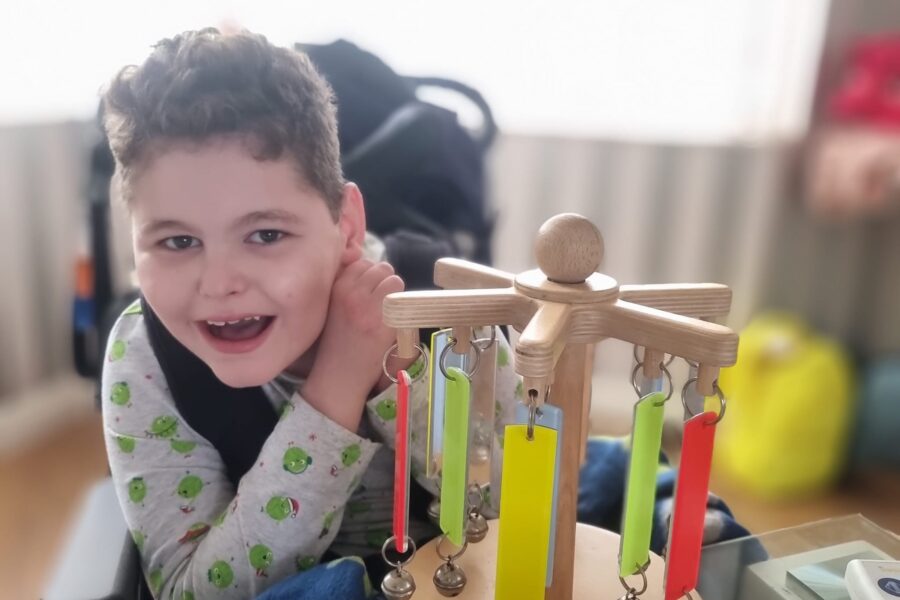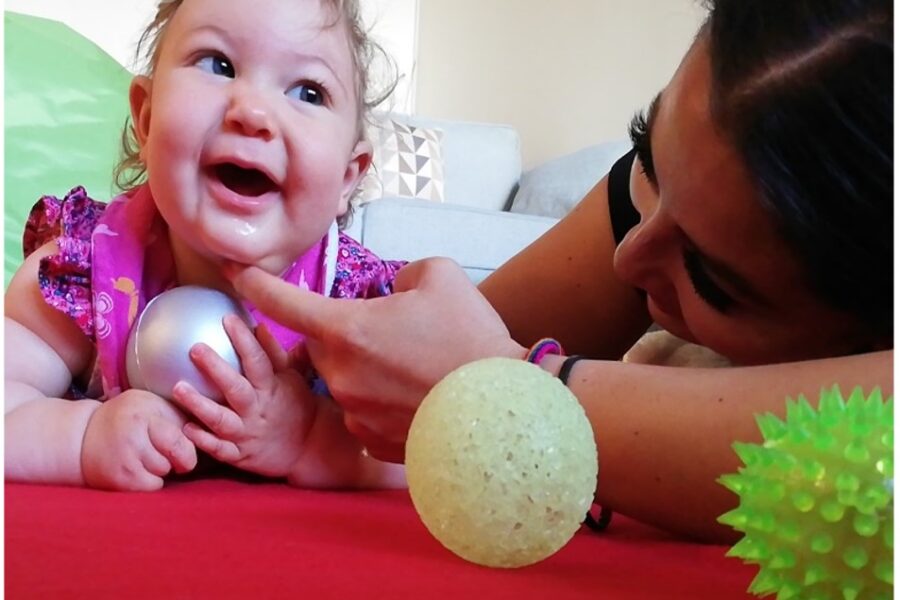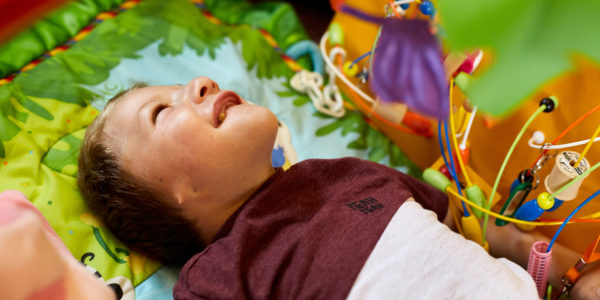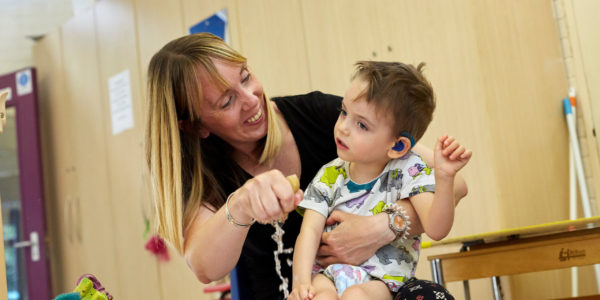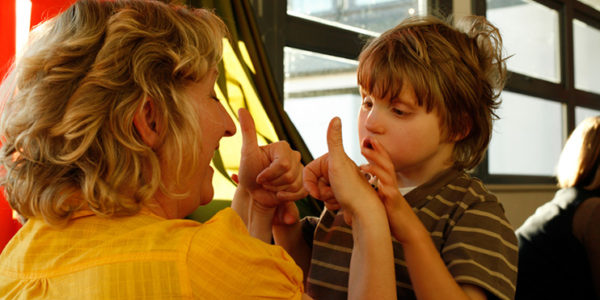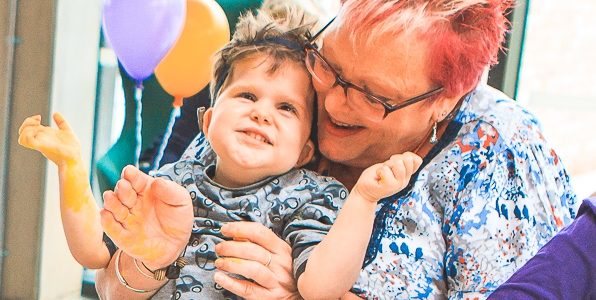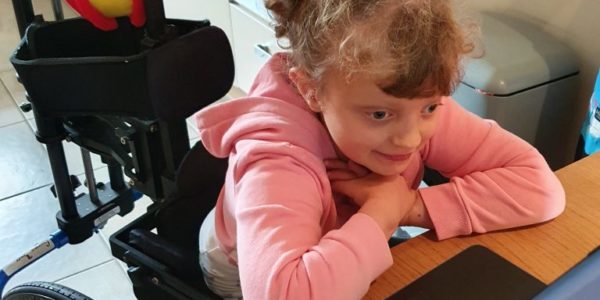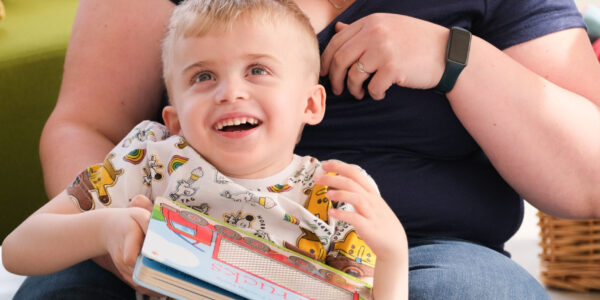Support for children with multi-sensory impairments
Our specialist support is for children and young people with an impairment in both their hearing and vision.
Some people call this multi-sensory impairment or dual sensory impairment, and some call it deafblindness.
We also offer support for those with a vision or hearing impairment alongside another disability, like autism or cerebral palsy.
To find out more about the support we can offer you and your child, get in touch.
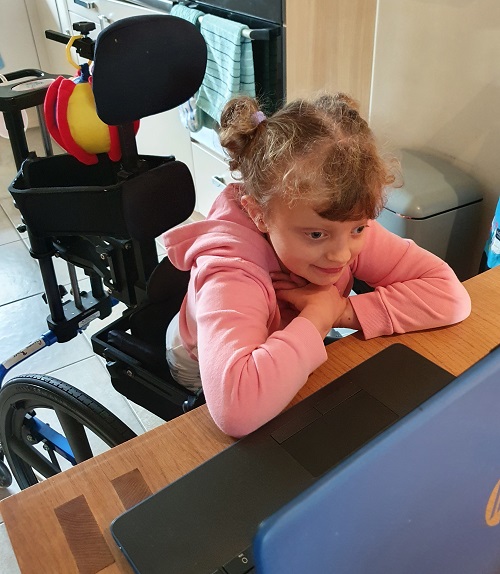
“It’s been amazing to work with the Sense team to develop Tilly’s communication. Before, she couldn’t communicate with us, but Sense is supporting Tilly to learn to sign.”
Louise, Tilly’s mum. Read Tilly’s story.
Where can I get support?
Our support is available across England and Wales.
We have centres in Barnet, Birmingham, Bristol, Caerphilly and Loughborough, and also host events in other venues around the country.
We also visit young people at home, school and in the community, and we can offer support online.
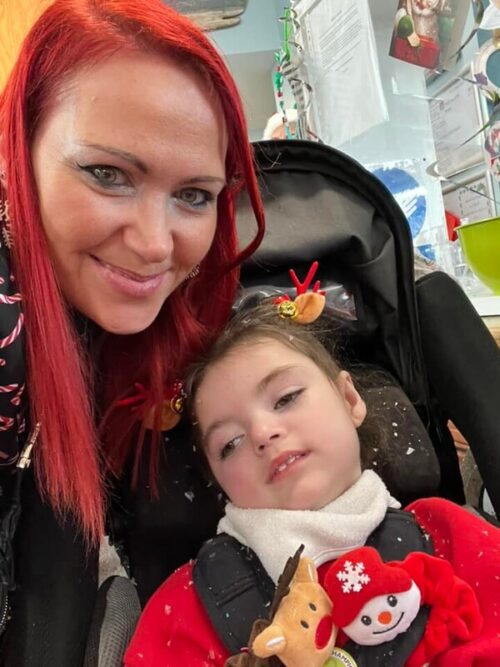
“Now, I feel very confident. We don’t see Verity’s disability as a barrier anymore. Sense has helped us smash through that.”
Sarah, Verity’s mum. Read Verity’s story.
What kind of support can I get?
-

Individual support for children who are deafblind
Together with parents, carers and other professionals, we support young people to develop their communication skills, and advocate for their wellbeing and independence.
What this means is different for every young person. We might be able to support you with your education, health and care plan, getting a diagnosis or accessing social care.
-

Early years groups
Our specialist early years groups are for children under five.
We use sensory play activities to develop skills, confidence and relationships, and support children to learn alternative ways of communicating.
-

Family events and support for parents
Our Family Days are regular events that welcome young people with multi-sensory impairments and their whole families. Families get the chance to meet each other and bond over exciting accessible activities like ice skating or drumming.
We understand the importance of having a support network, so we also offer spaces just for parents and carers to connect and share advice.
-
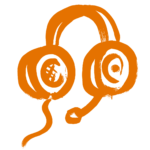
Virtual support and activities
We offer lots of online activities on weekends and school holidays, including yoga, dance, signed stories and craft sessions.
We also run weekly virtual after school clubs, with options including baking, music and resonance board sessions.
-

Support for teenagers and young adults
Some of our events and groups are aimed specifically at 14-25-year-olds with multi-sensory impairments.
This includes a regular group based in Birmingham that meets every month.
-

Health clinics and hospitals
We provide support at national health clinics that specifically focus on sensory impairments and/or rare diseases that affect vision and hearing.
We also support children with multi-sensory impairments and their families to prepare for hospital appointments and liaise with health professionals.
Information and advice
Raising a child with complex disabilities can leave you feeling unsure of where to turn. Sense is here to be your compass.
Template letters
Get support
Specialist resources and more information for professionals
We have a large selection of specialist toys and equipment available for professionals working with disabled children to borrow. If this interests you, please get in touch.
See our resources for professionals for more information about supporting children with multi-sensory impairments.

